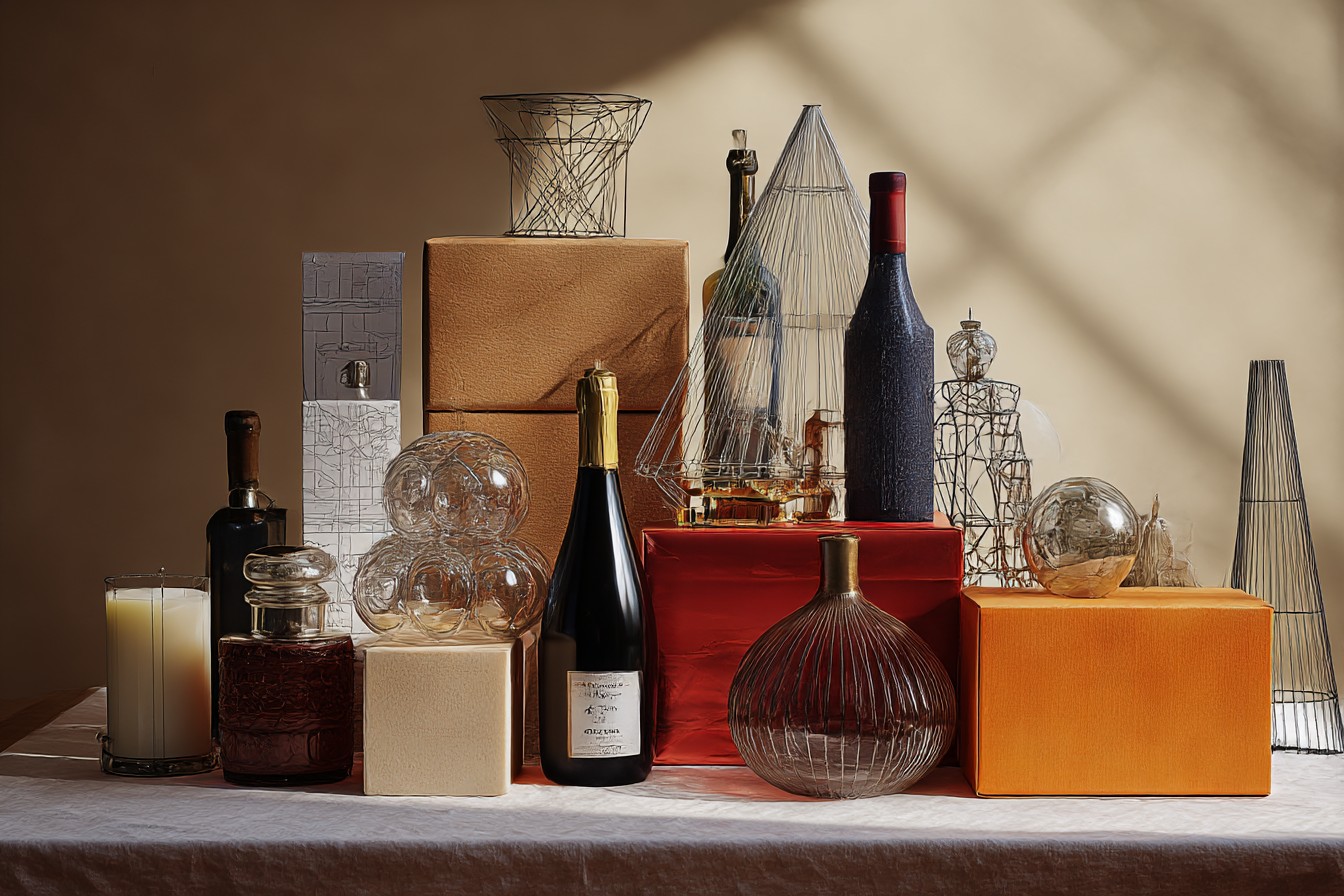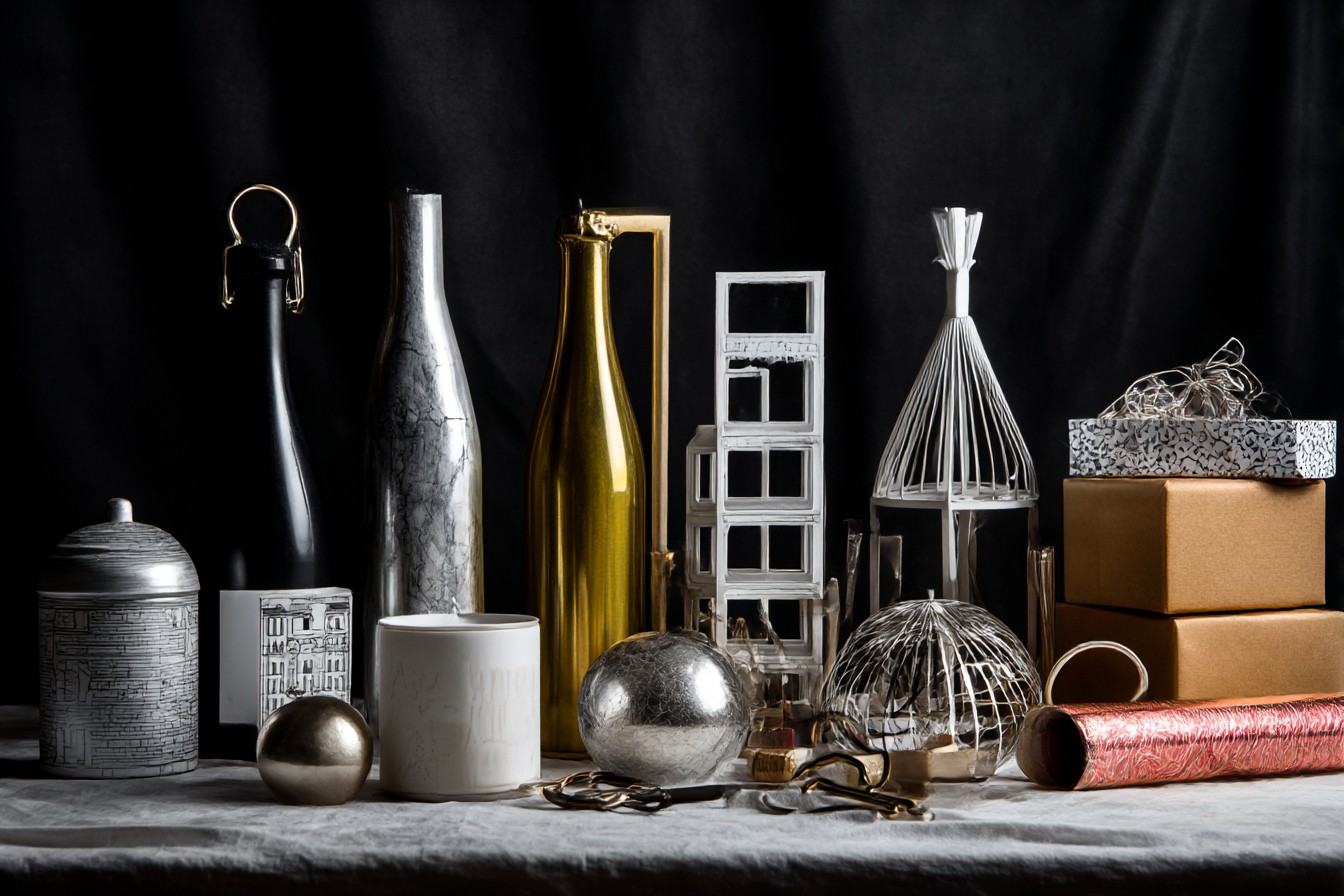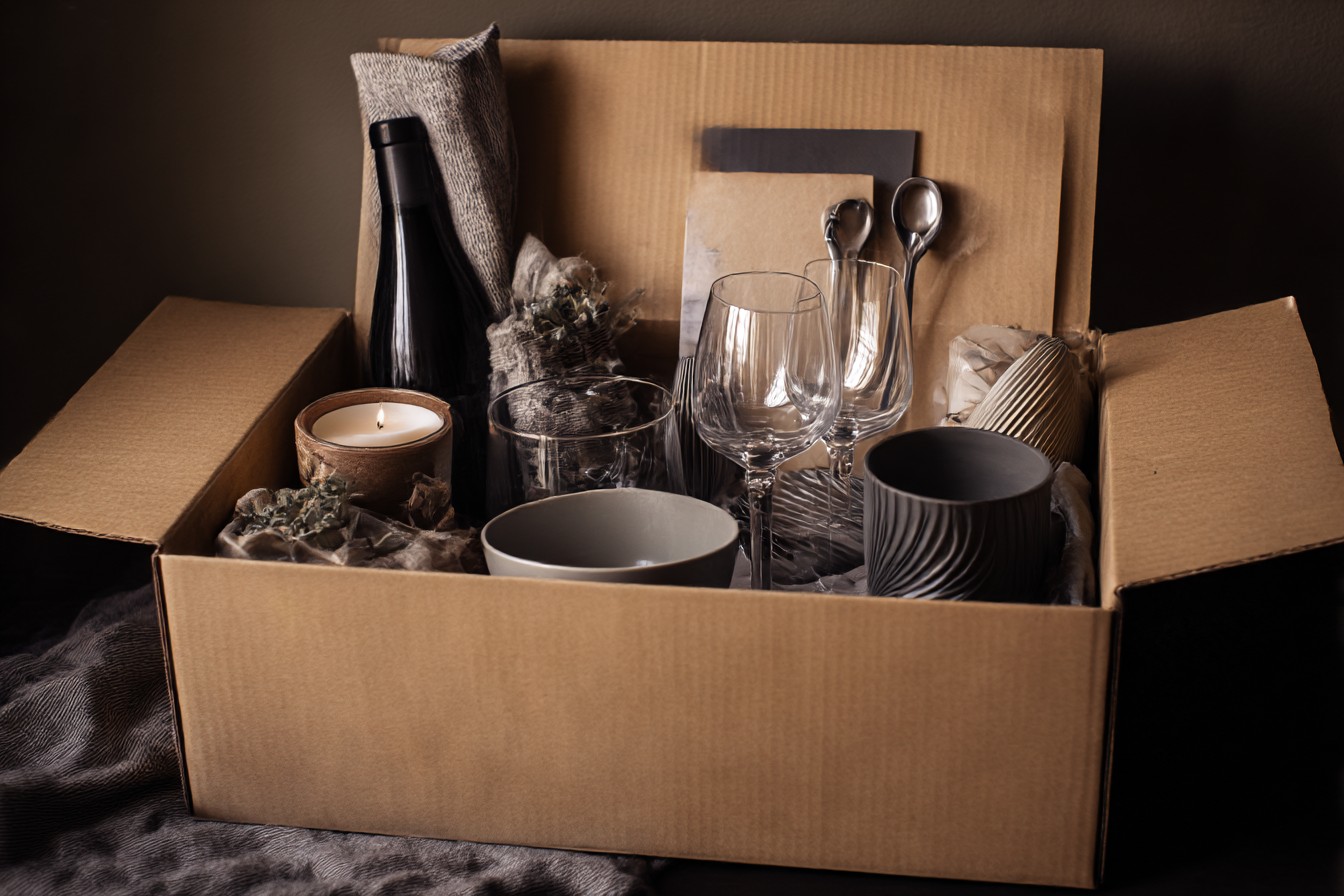I still cringe when I remember the housewarming gift I brought to my friend Natalie’s first flat. Picture this: it’s 2012, I’m fresh out of uni, and armed with precisely zero understanding of what new homeowners actually need. What did I bring to her tiny one-bedroom in Clapham? A novelty doormat with “Home Sweet Home” spelled out in what I can only describe as aggressively whimsical lettering. And wine. Always wine. Because nothing says “congratulations on the biggest financial commitment of your life” quite like a £7 bottle of Pinot Grigio and a doormat that started shedding fibres approximately 18 minutes after she unwrapped it.
Natalie, being the saint that she is, displayed that hideous doormat until it disintegrated about three months later. When I visited again, I noticed its absence immediately. “Oh, it sort of… fell apart,” she said carefully, clearly trying to spare my feelings. And then—bless her—she added something that completely changed my approach to housewarming gifts forever: “To be honest, the first month here was mad. I was eating takeaway on the floor because I hadn’t sorted a dining table yet. What I really needed was more practical stuff, but everyone kept bringing candles and wine.”
Right. Of course they did. Because that’s what we’ve collectively decided are appropriate housewarming gifts, isn’t it? Wine, candles, plants that die within a fortnight because the new homeowners are too busy assembling flat-pack furniture to remember watering schedules, and decorative items that often don’t match anyone’s actual taste. It’s like we’ve all agreed to participate in this strange ritual where we give new homeowners everything EXCEPT what might actually help them settle in.
That conversation with Natalie sent me down a rabbit hole. I started interrogating every friend who’d recently moved about what gifts had genuinely helped versus what had sat unused in a corner. I added a specific “housewarming” section to my gift journal (Charlie rolled his eyes so hard I feared for his ocular health). And after several years of research—because yes, I am exactly that level of obsessive about gift-giving—I’ve developed what I think is a much more helpful approach to housewarming presents.
The breakthrough came when I stopped thinking about housewarming gifts as decorative symbols and started thinking about them as practical support for a specific life transition. Moving house is chaotic, expensive, and disorienting. The best gifts acknowledge and ease that reality rather than adding to the pile of stuff that needs finding a home.
Take my colleague James and his partner, who bought their first place in Walthamstow last year. Instead of the standard bottle-of-something, I put together what I now call a “First Night Box.” It contained: takeaway vouchers for a local pizza place, paper plates and cups (because who knows where the proper dishes are), tea bags, fresh milk in a small container, two mugs, biscuits, loo roll, hand soap, bin bags, and paracetamol. Basic? Absolutely. Glamorous? Not in the slightest. But James texted me at 9:30 that night with a photo of them sitting on camping chairs in their empty living room, eating pizza off the paper plates, with the caption: “You are literally a LIFESAVER.”
The thing is, most people budget down to the last penny when buying a home. They plan for the deposit, the solicitor’s fees, the stamp duty, the movers. What they often don’t anticipate is how many small, essential purchases suddenly become necessary all at once. New shower curtain liners. Extension cords. That weird little thing that stops the washing machine from dancing across the floor. It adds up frighteningly fast, especially after you’ve just handed over the largest sum of money you’ve ever spent in your life.
This is where truly thoughtful housewarming gifts come in. Not to add more decorative objects to an already overwhelmed space, but to ease that transition period—practically, emotionally, or both.
After the success of the First Night Box, I expanded my housewarming repertoire. For my brother and his wife, who moved into a Victorian terrace that needed more work than they’d initially realized, I put together a “DIY Emergency Kit”: decent quality screwdrivers, a stud finder, wall plugs in various sizes, picture hanging strips, and—crucially—a tape measure. My sister-in-law later told me they’d used everything in the box within the first two weeks. The stud finder alone apparently saved them from putting a shelf bracket straight through a pipe, which would have been… well, let’s just say significantly more expensive than my gift.
For my friend Priya, who bought a garden flat in Finsbury Park and wouldn’t shut up about her plans for growing herbs, I skipped the obvious choice of plants (which, given her previous track record with botanical murder, seemed unwise) and instead got her a subscription to a gardening box service. Every month for the first year, she received seasonal seeds, simple growing instructions, and the basic tools needed. It spread the often overwhelming task of starting a garden into manageable monthly projects. Two years later, she’s transformed that neglected patch of scrubby London clay into something rather magical, and she swears it all started with not being overwhelmed at the beginning.
One approach I’ve found particularly successful is focusing on upgrading basic household necessities—things people typically own already but might be making do with subpar versions because replacing them hasn’t been a priority. A really good set of towels. Proper kitchen knives to replace the mismatched set from their student days. A decent hoover that doesn’t sound like a jet engine. These aren’t glamorous gifts, but they’re the sort that prompt genuine gratitude months later, when the recipient realizes they’re using your gift literally every day.
My friend Sophie’s approach is genius too. For every housewarming, she gives a simple toolkit (hammer, screwdrivers, pliers, etc.) and offers four hours of her time to help with whatever needs doing. “Everyone needs a toolkit, and everyone needs help,” she told me. “It’s the combination that makes it work.” She’s assembled furniture, hung pictures, painted walls, planted window boxes—all alongside the new homeowner, teaching them skills as they go. The time element transforms what could be a basic practical gift into something far more valuable.
For those who prefer giving something with more immediate “wow factor,” I’ve found that consumable gifts specifically tailored to the new home can work brilliantly. A hamper of local specialities from independent shops in their new neighbourhood. A selection of nice teas or coffees with two beautiful mugs and a note about “taking a break from unpacking.” A really good quality candle—yes, I know I mocked these earlier, but bear with me—with matches and a heartfelt card suggesting they take a moment to sit quietly and appreciate their accomplishment before the chaos of renovations begins.
It’s this acknowledgment of the emotional journey of homebuying that can make even simple gifts feel meaningful. Moving house consistently ranks among life’s most stressful events. The best housewarming gifts recognize this and offer a moment of comfort, celebration, or practical help.
My colleague Beth’s approach is one I’ve shamelessly copied: she gives each new homeowner a “local guide” she creates herself. She researches the best takeaways, nearest late-night shops, recommended plumbers and electricians, which day the bins go out—all the local knowledge that takes months to accumulate normally. She presents it in a simple folder along with a few relevant vouchers or menus. It costs very little beyond her time but provides immense value during those disorienting first weeks.
Of course, sometimes the most helpful gift isn’t an object at all. When my cousin moved into his first flat, what he really needed was muscle power and practical help. So instead of a physical gift, a group of us created a “moving day package”—we showed up with coffee and pastries at 8am, loaded and unloaded the van, assembled furniture until late evening, and ordered takeaway for everyone. The total cost was roughly what a traditional gift would have been, but the value was immeasurably higher.
I think the key insight that transformed my approach to housewarming gifts was realizing that “home” isn’t just about the physical space—it’s about feeling settled, functional, and at ease in that space. The best gifts support that broader goal, whether through practical items, knowledge, time, or simply a gesture that says “I understand this is a big moment and I’m here for it.”
That said, there’s still room for some personality and meaning beyond pure functionality. One of my favourite housewarming traditions is to give a houseplant—but not just any houseplant. I try to find one that has some significance based on the person and their new home. For a friend moving from a dark flat to a sunny house, I gave a citrus plant that would thrive in her new south-facing windows, symbolizing the fresh start and brightness of her new place. For another friend who was nervous about the responsibility of homeownership, I chose a nearly indestructible ZZ plant with a humorous care card that read “Even you can’t kill this one.” It acknowledged her anxiety with gentle humour while still being a beautiful addition to her space.
If you’re struggling to think beyond the conventional housewarming gifts, try this mental exercise: picture the recipient’s first few weeks in their new place. What moments might be stressful? What small comforts might be missing? What knowledge do you have (about the area, about homeownership, about their specific property type) that could ease their transition?
Sometimes the most appreciated gifts are the ones that solve problems the recipient doesn’t even know they have yet. My friend Lisa, who works in property development, always gives new homeowners a binder containing plastic sleeves for storing warranties, instruction manuals, and important home documents, along with a home maintenance checklist customized to their property type. “No one thinks about document storage when they’re excited about their new kitchen,” she told me, “but three months in, when the boiler makes a weird noise and they can’t find the warranty info, they remember my boring binder very fondly.”
I should acknowledge that not all housewarming situations are the same. A young couple buying their first starter home has very different needs from friends upgrading to a forever family house, or someone downsizing after their children have moved out. The key is to consider where they are in their housing journey.
For first-time buyers, practical necessities and basic home maintenance support are usually most welcome. For those upgrading, consider items that reflect the new chapter—perhaps something for the garden if they’ve never had outdoor space before, or something related to entertaining if they now have room for dinner parties. For those downsizing, thoughtful gifts might focus on making the new, smaller space feel special and personal.
I remain convinced, though, that the most meaningful housewarming gifts are those that recognize the practical and emotional reality of the major life transition that is establishing a new home. Whether that means helping to stock their kitchen with basics, equipping them with tools to make the space their own, or simply offering your time and support during the chaotic settling-in period.
And if you absolutely must give a novelty doormat (we all have our moments of gift-giving weakness), at least make sure it’s a sturdy one. Unlike mine, which shed all over Natalie’s hallway until it mercifully disintegrated, taking my early housewarming gift reputation along with it.





Leave a Reply